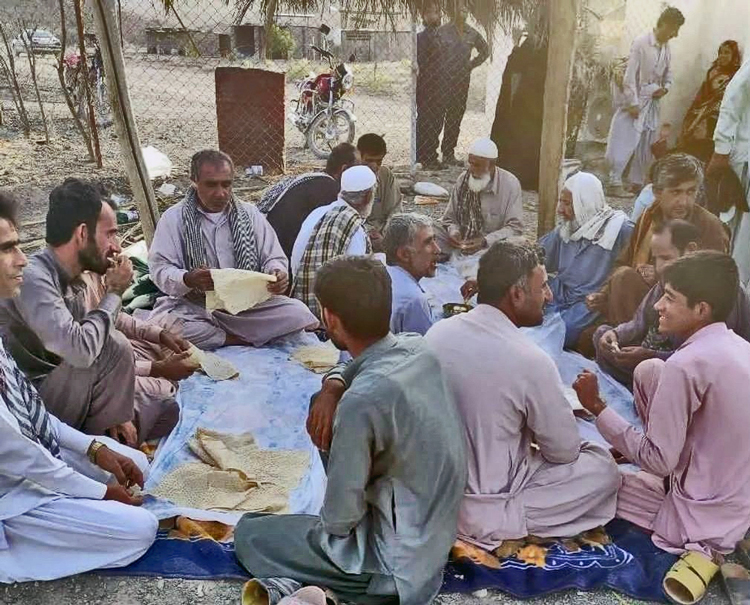Baluch farmers have been blocking the entrance (above) to a copper mine in Rameshk in Iran’s Kerman province for over a month and a half. They are protesting the confiscation of their farmland without compensation by the mine owners and that the company won’t hire local labor. They’re also concerned that mine waste will contaminate their water supply.
The police have arrested at least two protesters in an attempt to intimidate the farmers.
Baluch workers and farmers in Kerman and neighboring Sistan-Baluchistan province have been at the forefront of protests against attacks on democratic rights by the Iranian government. The mostly rural region in southeastern Iran is one of Iran’s poorest. Many villages lack drinking water and electricity.
The Baluch are a mostly Sunni Muslim oppressed nationality spread across the region, with 2 million in Iran, 600,000 in Afghanistan and 6 million in Pakistan. They face discrimination in all three countries.
In Iran, thousands of Baluch are denied official ID cards by the Shiite-based bourgeois clerical regime, preventing them from receiving social security, education and other rights.
Even though Baluchi speakers make up only about 5% of Iran’s population, they are 20% of those executed by the regime. The regime has stepped up executions in the wake of the mass “Women, Life, Freedom” protests after the death of Zhina Amini, a young Kurdish woman. She died following her arrest in Tehran in September 2022 by the hated morality police for allegedly violating the reactionary dress code for women.
According to Amnesty International, Tehran carried out 853 executions in 2023 — mostly for drug and other criminal offenses, along with a smaller number that are blatantly political, 30% more than in 2022 — the second-largest number in the world, after only the Chinese government.


